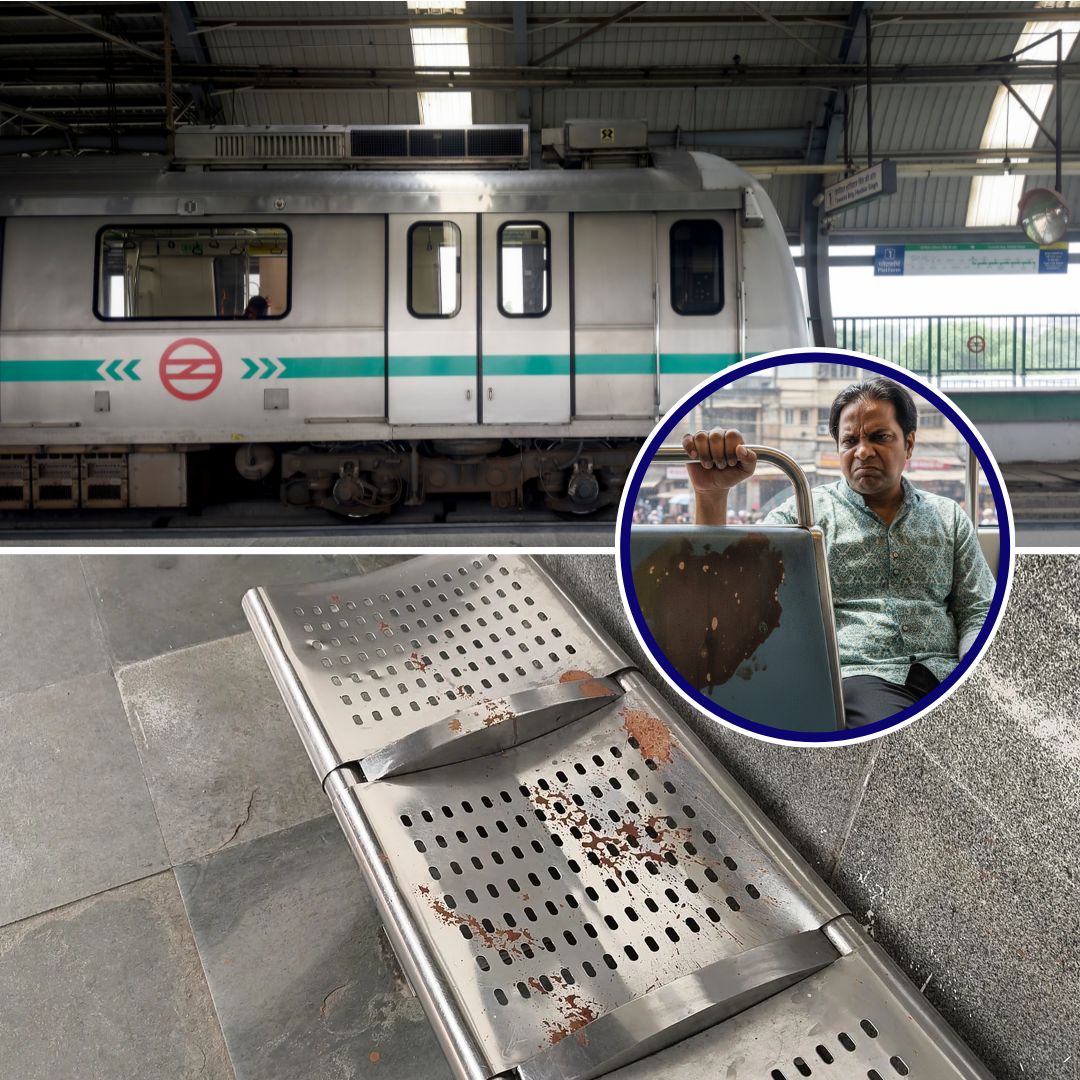A disturbing photo surfaced on social media showing a metro seat smeared with gutka, a chewing tobacco product, at Delhi’s Azadpur metro station.
The viral post on Reddit highlighted commuter outrage over this disrespectful and unsanitary behaviour. While the Delhi Metro Rail Corporation (DMRC) maintains rigorous cleaning protocols, officials have yet to give a specific response on the incident.
Public calls are growing louder for stricter enforcement and greater civic responsibility to keep shared public spaces hygienic and pleasant for all.
Public Outrage Over Hygiene Breach
The gutka-smeared metro seat at Azadpur station has become a symbol of ongoing challenges in maintaining cleanliness in the Delhi Metro, which serves millions daily.
Commuters took to social media platforms to express their frustration, with many condemning the act as not only disrespectful but also a public health concern. Chewing tobacco products like gutka are habitually spat out in public spaces, creating unpleasant and unhygienic surfaces.
A Reddit user’s post bluntly criticised the perpetrators for their “retarded” lack of civic sense, echoing the sentiments of many who expect clean, safe conditions when using public transport.

Cleanliness Efforts and Calls for Accountability
The Delhi Metro Rail Corporation routinely conducts cleaning and sanitisation drives to maintain station hygiene, including regular scrubbing and waste disposal. However, officials acknowledge that the effectiveness of these measures hinges on commuter cooperation and adherence to rules against spitting and littering.
Despite awareness campaigns and fines imposed for such offences, enforcement remains inconsistent, allowing behaviours like gutka spitting to persist.
With no immediate official response to this specific viral incident, commuters are urging the DMRC and local authorities to intensify surveillance, impose harsher penalties, and increase public education campaigns about hygiene.
Public awareness campaigns promoting anti-spitting and cleanliness etiquettes have been launched, targeting commuter behaviour change. Experts emphasise that fostering a culture of cleanliness requires sustained education alongside strict enforcement. Collective action by authorities and citizens is crucial to preserve shared urban spaces and improve overall commuter experiences.
Background on Gutka and Public Transport Cleanliness
Gutka, a widely consumed though harmful chewing tobacco product in India, contributes significantly to public cleanliness issues. Besides health risks, discarded gutka stains and spittle hurt the aesthetic and sanitary standards of public spaces, especially crowded metro systems.
Over the years, despite regulations prohibiting spitting and tobacco consumption at metro stations, such behaviours continue, often linked to addiction and lack of awareness. The Azadpur incident is a stark reminder that infrastructural cleanliness must be paired with an ongoing social initiative to cultivate civic responsibility and empathy in commuters.
The Logical Indian’s Perspective
This incident reveals the urgent need for collective responsibility and kindness in protecting shared public spaces. While addiction may play a role, it cannot justify degrading communal property and risking others’ health and dignity.
The Logical Indian emphasises the importance of empathy, mutual respect, and cooperation in fostering a cleaner, healthier public transport environment. Beyond regulatory measures, true change arises from community-driven awareness and compassion.
Are gutka eaters retarded
byu/Minsi_ indelhi











